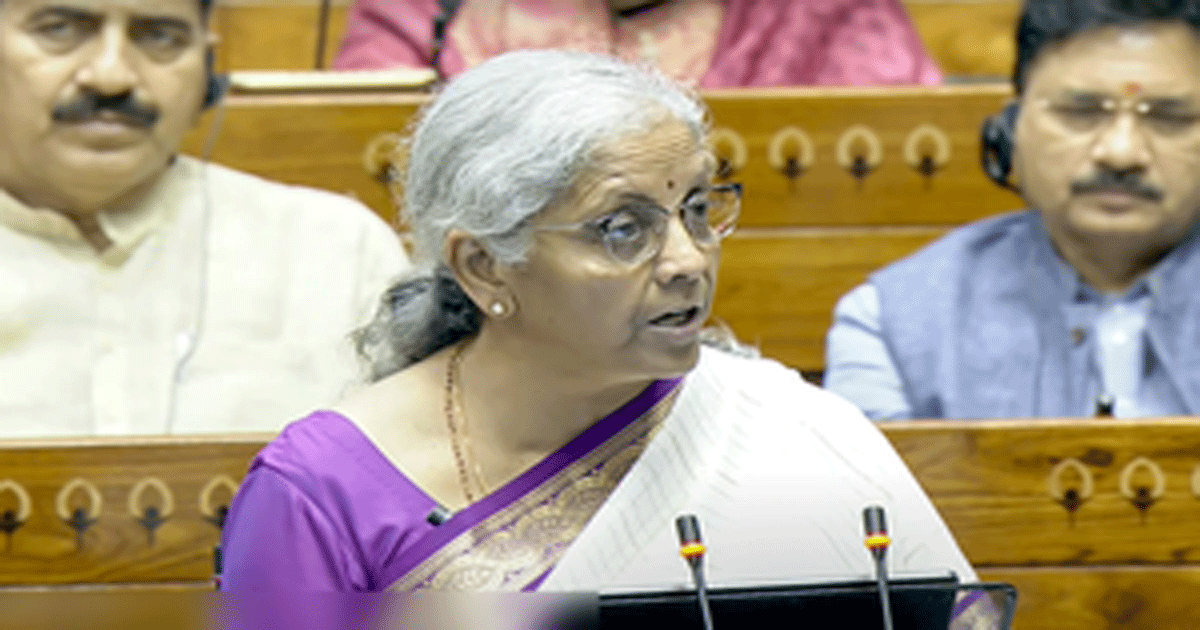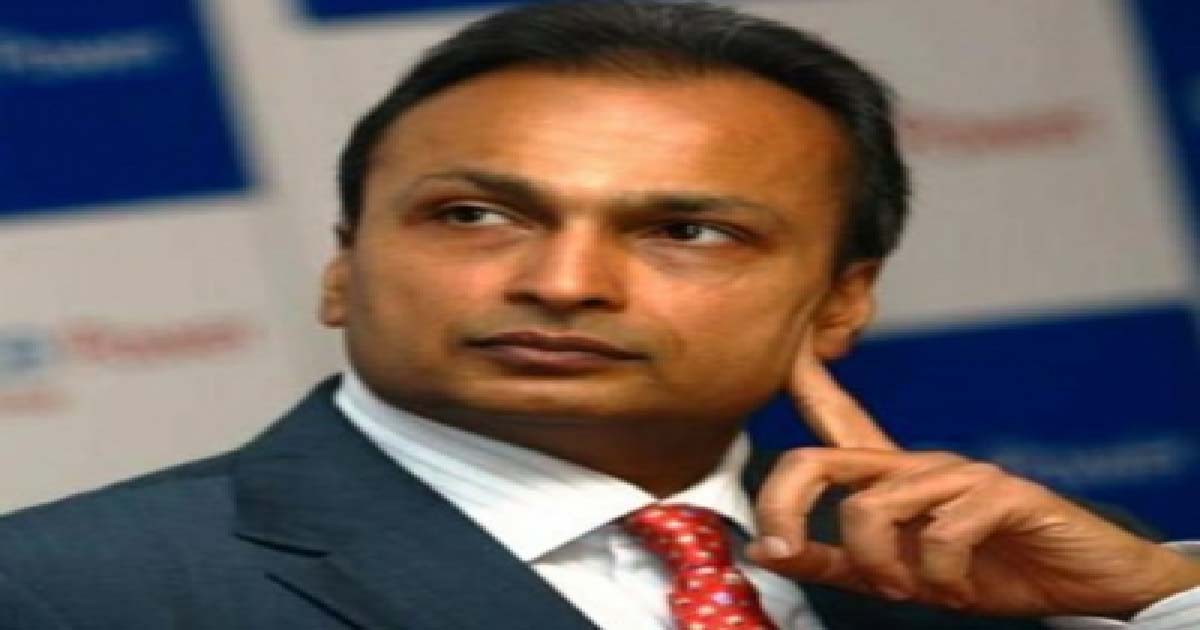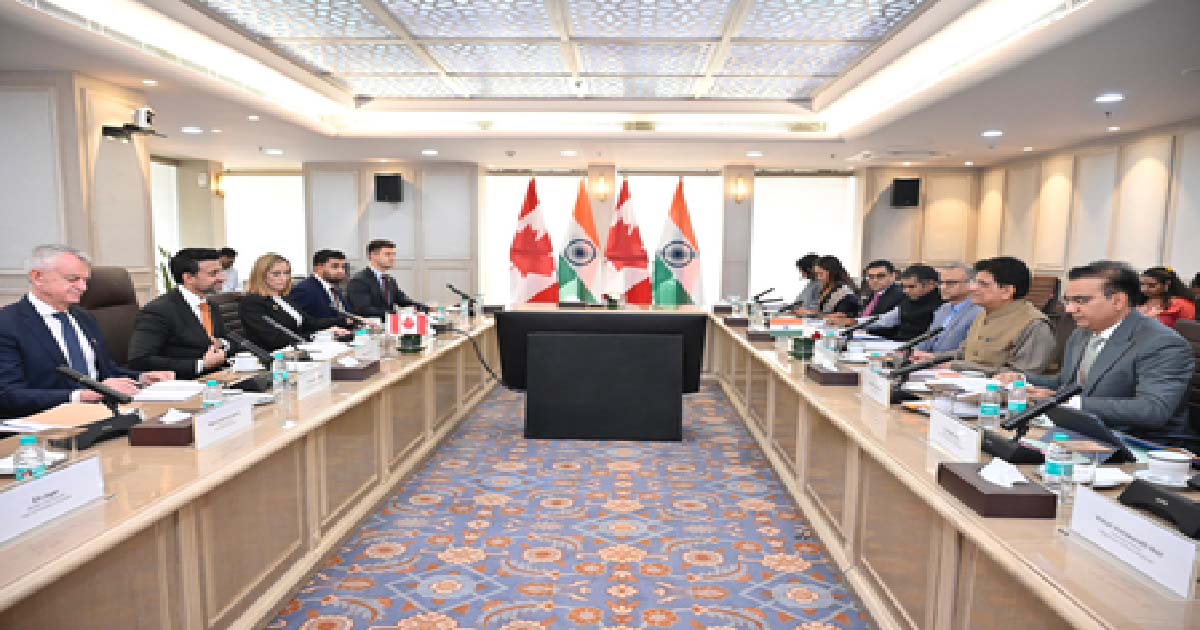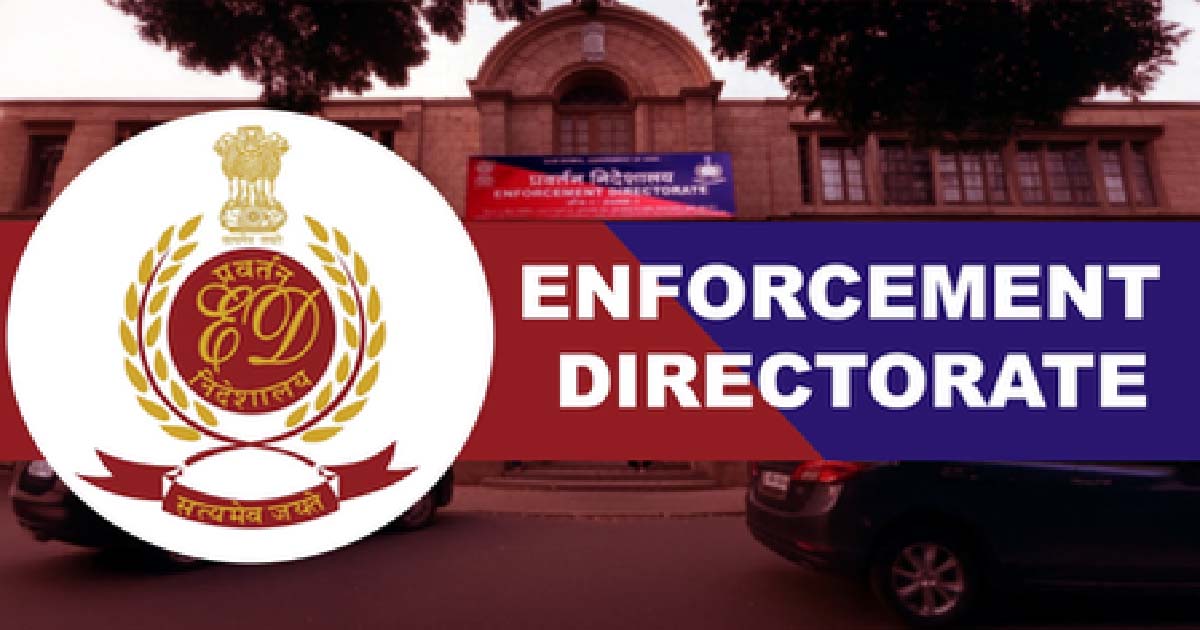Business
Union Budget falls on Saturday this year, stock exchanges to remain open

New Delhi, Jan 10: As the preparations for the Union Budget 2025-26, which generally comes on February 1, are in full swing, all eyes are now on the official confirmation from the government about presenting the budget over the weekend this year.
There have been occasions in the past when the Union Budget was presented on Saturdays and the domestic stock markets were open.
On February 1, 2020, and February 28, 2015, the markets were open on Saturday due to the presentation of the Union Budget.
In a circular dated December 23, the National Stock Exchange (NSE), has already said that due to the presentation of the Union Budget, a special trading session has been kept for Saturday, February 1, 2025.
“On account of the presentation of the Union Budget, Exchange shall be conducting a live trading session on February 01, 2025, as per the standard market timings,” according to the circular.
The pre-open session will be from 9 a.m. to 9.08 a.m. After this, there will be a normal trading session from 9.15 a.m. to 3.30 p.m.
On February 1, 2024, the Nifty closed with a decline of 0.13 per cent during the presentation of the interim budget.
On the day of the full budget presented on July 23, 2024, after the Lok Sabha elections, the Nifty closed with a decline of 0.12 per cent.
Meanwhile, the government will continue its focus on improving quality spending, strengthening the social security net, and reducing the fiscal deficit to 4.5 per cent of the GDP in the financial year 2025-2026, according to a Finance Ministry statement.
FM Sitharaman is expected to continue with the government’s position of increasing expenditure on big-ticket infrastructure projects and social welfare schemes for the poor while keeping the fiscal deficit in check when she presents the Union Budget for 2025-26 in Parliament on February 1.
Business
Anil Ambani skips ED questioning, no virtual appearance allowed (Lead)

New Delhi, Nov 14: The Enforcement Directorate (ED) will not grant any virtual appearance to Reliance ADAG Group Chairman Anil D. Ambani after the latter sought it in response to a summons sent by the investigative agency to appear before it for questioning in a money laundering case, according to sources on Friday.
Anil Ambani skipped the ED summons to appear for the second round of questioning at the agency’s Delhi headquarters on Friday (November 14).
As per ED sources, no virtual appearance will be given to Anil Ambani, as requested. The regulator, however, has received an email from him regarding his availability via virtual means.
Anil Ambani, in a media statement, said that he is “willing to offer to appear by virtual means”, adding that he will “fully cooperate with ED on all matters”.
The statement claimed that “ED summons to Anil D. Ambani relate to a Foreign Exchange Management Act (FEMA) inquiry and not to any matter under the Prevention of Money Laundering Act (PMLA)”.
The summons concerns a 2010 domestic EPC contract for the Jaipur–Reengus (JR) Toll Road and concerns issues associated with a road contractor, with no foreign exchange component, it said.
“Anil D. Ambani is not a member of the Board of Reliance Infrastructure. He served the company for about fifteen years, from April 2007 to March 2022, only as a non-executive director, and was never involved in the day-to-day management of the company,” it added.
The ED had summoned Anil Ambani again on November 14 for questioning in the money laundering case against the conglomerate. He faced a gruelling, around nine-hour interrogation regarding an alleged Rs 17,000-crore loan fraud case at ED headquarters in August.
The financial probe agency had earlier attached 42 properties worth over Rs 3,083 crore in the bank fraud cases of Reliance Communications Ltd. (RCOM), Reliance Commercial Finance Ltd., and Reliance Home Finance Ltd.
Business
India, Canada discuss ways to boost bilateral trade, promote investments

New Delhi, Nov 13: Commerce and Industry Minister Piyush Goyal and Maninder Sidhu, Canada’s Minister of International Trade, discussed ways to further boost bilateral trade and promote investments, it was announced on Thursday.
Sidhu is in India to find opportunities to advance trade and investment linkages between the two nations.
“It was a pleasure to co-chair the 7th India-Canada Ministerial Dialogue on Trade and Investment as part of the New Roadmap 2025 along with @MSidhuLiberal, Canada’s Minister of International Trade,” Goyal posted on the X social media platform.
The minister further stated that they discussed “avenues to strengthen bilateral trade, promote investments and deepen cooperation between our countries”.
During his India visit, Sidhu is set to promote Canada’s commitment to supporting and growing the well-established commercial ties shared by Canada and India, including artificial intelligence, clean technology and digital industries, and explore new opportunities for partnerships that benefit workers and businesses in both countries.
“This visit to India will reinforce Canada’s commitment to diversifying our trade relationships and attracting new investment,” an official statement quoting Sidhu said. “As one of the fastest-growing major economies, India offers significant opportunities for Canadian businesses and workers. Our commercial ties continue to expand — bilateral trade surpassed $30 billion in 2024 — and there is even greater potential ahead,” the statement added.
India is a key partner as Canada strengthens its economic links in the Indo-Pacific region under a comprehensive strategy for the region. In 2024, India was Canada’s seventh-largest goods and services trading partner, with two-way trade valued at $30.9 billion.
Meanwhile, External Affairs Minister (EAM) S. Jaishankar and his Canadian counterpart, Anita Anand, held discussions on strengthening cooperation across key sectors, including trade, energy and security. Both leaders met on the sidelines of the G7 Foreign Ministers’ Meeting in Niagara.
EAM Jaishankar also praised the progress made under the New Roadmap 2025, aimed at enhancing bilateral ties between India and Canada and expressed hope for rebuilding a stronger partnership.
Business
ED arrests Jaypee Group chief Manoj Gaur in money laundering case

New Delhi, Nov 13: The Enforcement Directorate (ED) has arrested Manoj Gaur, Managing Director of Jaypee Infratech Limited, in a money laundering case linked to the alleged siphoning of money paid by homebuyers for the construction of flats, according to sources on Thursday.
The Enforcement Directorate had in May carried out searches at 15 premises linked to Manoj Gaur’s flagship real estate development companies — Jaypee Infratech Ltd., and Jayprakash Associates Ltd, as well as their associated entities.
During the operation, officials seized hard cash to the tune of Rs 1.7 crore, along with financial records, digital data, and property documents registered in the names of promoters, their family members, and group companies.
The raids were carried out across Delhi, Mumbai, Noida, and Ghaziabad as part of an ongoing investigation under the Prevention of Money Laundering Act (PMLA).
IDBI Bank had first filed a petition against Jaypee Infratech Limited (JIL) in the National Company Law Tribunal (NCLT), Allahabad, after JIL defaulted on a payment of over Rs 526 crore. The NCLT initiated the insolvency process on August 9, 2017.
The insolvency case gained national attention due to over 21,000 homebuyers who had booked flats in JIL projects being left in the lurch as money had been diverted from construction projects, primarily in Wish Town, Noida.
The Supreme Court intervened to protect their interests, eventually leading to an amendment to the IBC that classified homebuyers as financial creditors, giving them a vote in the resolution process.
The case involved extensive legal proceedings, including disputes over transactions where JIL’s assets were mortgaged to secure the debts of its parent company, Jaiprakash Associates Limited (JAL).
After several rounds of bidding, the National Company Law Appellate Tribunal (NCLAT) approved a resolution plan submitted by the Suraksha Group in May 2024. Under this plan, Suraksha is to complete the unfinished projects and pay enhanced compensation to farmers as part of the land acquisition terms.
-

 Crime3 years ago
Crime3 years agoClass 10 student jumps to death in Jaipur
-

 Maharashtra1 year ago
Maharashtra1 year agoMumbai Local Train Update: Central Railway’s New Timetable Comes Into Effect; Check Full List Of Revised Timings & Stations
-

 Maharashtra1 year ago
Maharashtra1 year agoMumbai To Go Toll-Free Tonight! Maharashtra Govt Announces Complete Toll Waiver For Light Motor Vehicles At All 5 Entry Points Of City
-

 Maharashtra1 year ago
Maharashtra1 year agoFalse photo of Imtiaz Jaleel’s rally, exposing the fooling conspiracy
-

 National News1 year ago
National News1 year agoMinistry of Railways rolls out Special Drive 4.0 with focus on digitisation, cleanliness, inclusiveness and grievance redressal
-

 Maharashtra12 months ago
Maharashtra12 months agoMaharashtra Elections 2024: Mumbai Metro & BEST Services Extended Till Midnight On Voting Day
-

 National News1 year ago
National News1 year agoJ&K: 4 Jawans Killed, 28 Injured After Bus Carrying BSF Personnel For Poll Duty Falls Into Gorge In Budgam; Terrifying Visuals Surface
-

 Crime1 year ago
Crime1 year agoBaba Siddique Murder: Mumbai Police Unable To Get Lawrence Bishnoi Custody Due To Home Ministry Order, Says Report












